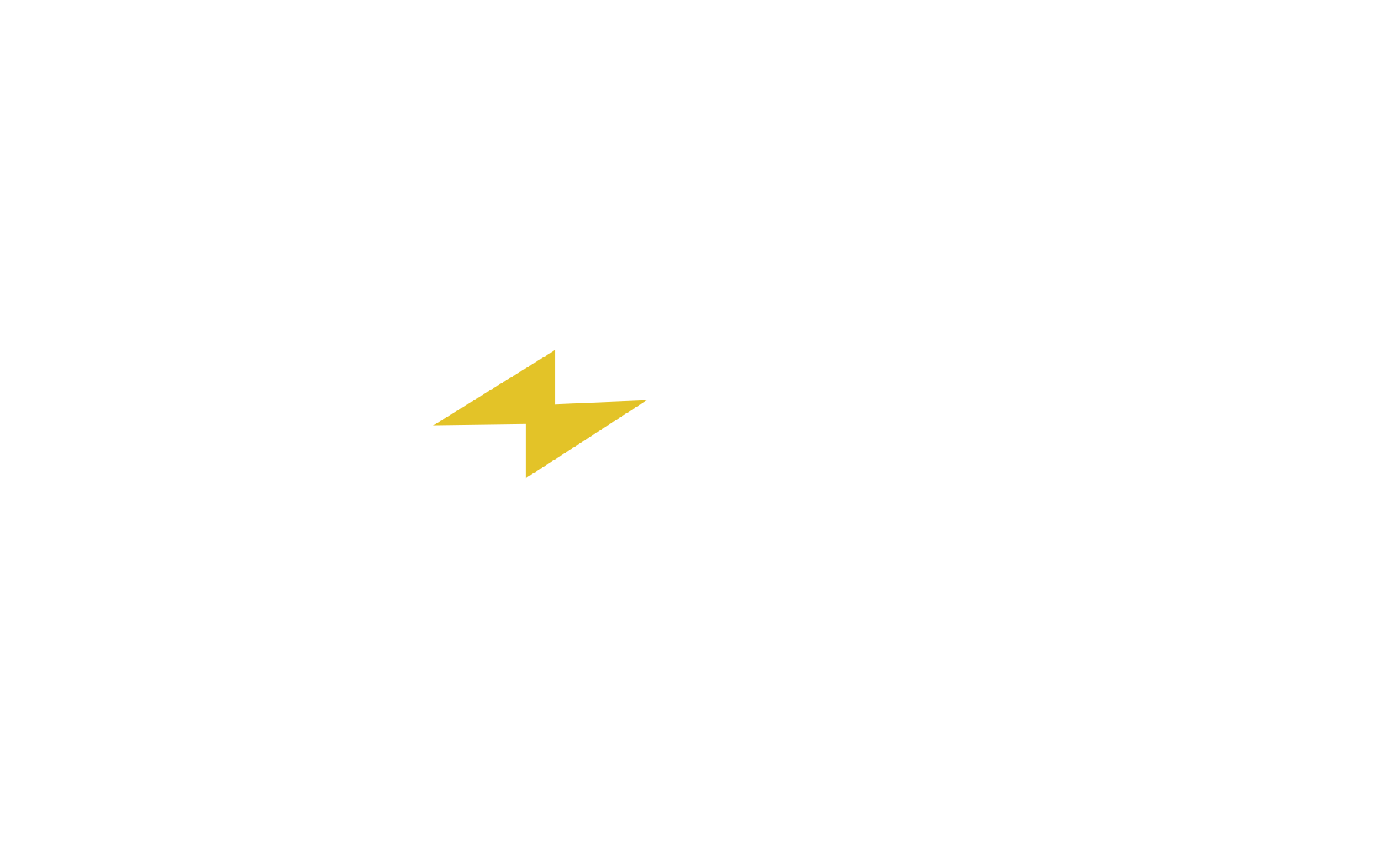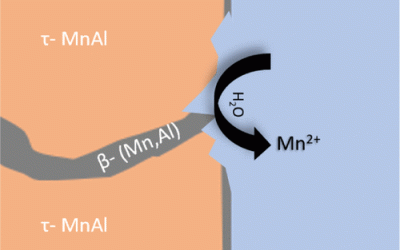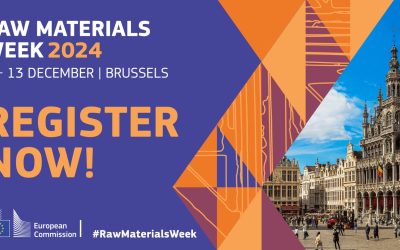The new year has begun with a promising outlook for the European-funded project PASSENGER based on the outcomes of the semi-annual consortium meeting and the first review by the European Commission held in Athens, Greece, at the end of 2022. Over 30 participants, both researchers and business executives from 8 European countries, presented the research results and discussed about the overall progress since the beginning of the project.
What’s new
PASSENGER aims to develop alternatives to raw materials in the construction of permanent magnets and test their performance in the electromobility sector and water motor pumps – a solution which can contribute to a greener and more sustainable Europe. The meeting began with presentations by Metalpine, LCM and ILPEA on the current status of the fabrication of manganese-aluminium-carbon (Mn-Al-C) loose powder, improved ferrite loose powder and compounds; all precursor materials which will be used for the production of the magnets. Results from the first trials on test materials towards specific target values of remanence and coercivity show that the improvement of traditional hard ferrite might open new and exciting application areas. In parallel, the consortium is working actively on the first attempt at industrial production of Mn-Al-C in Europe, with promising results on the fabrication of this alloy in cast and powder shape.
The PASSENGER project is an excellent example of Basic research turning into Applied research and scaled production. Everything started in the lab with new ideas and state-of-the-art materials in quantities of milligrams and grams. Within 18 months, more than 150 kg and four tones of the two alternative rare earth-free permanent magnet materials (MnAlC and improved ferrite) have been industrially produced. With two more years of work ahead of us, PASSENGER aims to deliver more surprises in the field of sustainable permanent magnets and key technological applications that will drive us into a greener future.
The team also presented the methods and processes of fabricating the Mn-Al-C and improved ferrite magnets. During break-out sessions, partners discussed in detail how they plan to produce three different permanent magnet categories: fully dense magnets by hot-deformation (WILO), sintered magnets from green compacts (KOLEKTOR) and bonded magnets (BARLOG and IMA), the realisation of simulations and the opportunities for collaboration.
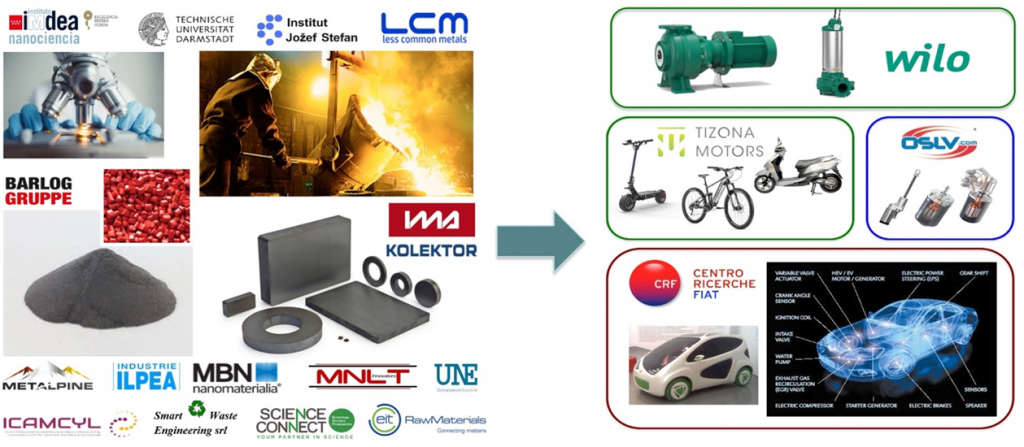
From basic to applied research and scaled production: the PASSENGER route
PASSENGER estimates that in the forthcoming months will perform the first tests with the new Mn-Al-C material magnets. In addition, the first pilot (pump rotor prototype) with the Ferrite material is expected by March 2023.
On the application side day, WILO presented the validation pilots’ plan regarding the commercial application of PASSENGER’s new magnets and how these will be integrated into functional prototypes in the electromobility and pump motors sectors. In turn, ICAMCYL described the framework of the techno-economic, safety and environmental assessment of the PASSENGER value chain. The recent communication and dissemination activities were in the spotlight by the ESF-Science Connect, as well as opportunities for broader engagement with different stakeholders. Key discussion points also included a stakeholders’ analysis by MNLT and an analysis of the standardisation landscape by UNE.
Midterm evaluation
PASSENGER partners had the opportunity to inform the staff of the European Health and Digital Executive Agency (HaDEA) about the progress of their work and share their insights, emphasising the need for close collaboration and constant knowledge sharing to tackle the rare-earths challenge. In this context, the team welcomed the feedback and recommendations of the reviewing committee and concluded the 3-day meeting by reiterating its commitment to defining a sustainable and efficient path, from magnets fabrication to their integration in daily applications.
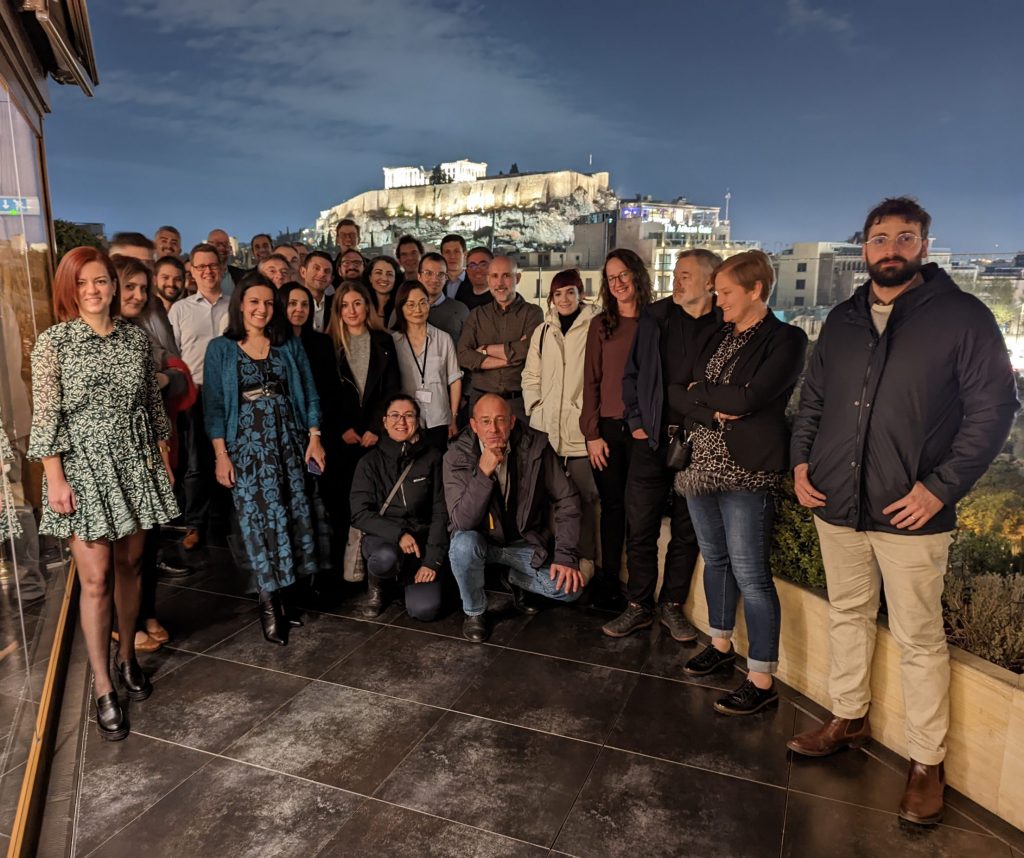
The PASSENGER team during the semi-annual consortium meeting in Athens, 29 November – 1 December 2022

